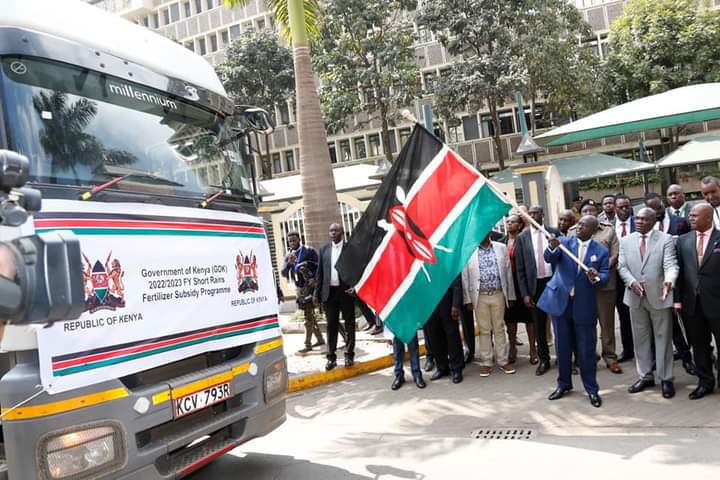Subsidised fertiliser good idea, soil testing even better
By PD columnist, December 21, 2022Despite the effort to improve food productivity, little success has been achieved. We are facing the reality of not being able to feed the rapidly growing global population.
This portends global instability. Instability worsens the state of food security. Therefore retracing our pathway to improved and sustainable food production and security is important. To start off the process, determining soil health is critical.
Our soils, especially in Africa, are sick. This simply because even with increased use of fertilisers, food productivity has remained low.
Just like any health issue, remedy should be sought through checkup. The soil health checkup must be the starting point in the quest to improve agricultural productivity in Africa.
Article 43 (1) (C) of the Constitution obligates the State to ensure that every citizen is free from hunger and has access to food of acceptable quality. More than 10 years since the Constitution took effect, this endeavour is yet to be realised.
The latest effort by the government to boost food productivity to ensure Kenyans are food secure has come in the form of fertilizer subsidy. On Jamhuri Day, President William Ruto announced importation of more subsidised fertiliser. But how far can this initiative go in terms of boosting agricultural productivity and ensuring food security, where previous efforts failed?
To avoid failure, it is imperative to look into the state of soils in Kenya through massive testing. Investing in soil testing would not only give the government an open door to food security but also a window to reduce the rate of unemployment.
Kenya’s technological profile is tremendous. Young people are endowed with digital capabilities and skills that could be useful in soil testing. Young people should be trained to undertake these tasks.
Engaging young people in soil testing will also bring them closer to involvement in the agriculture sector. No doubt, learning to use digital tools in soil testing will open new frontiers in agriculture.
What is required is collaboration and partnership among different actors and sectors. Public and private entities must be persuaded to work together, share knowledge and tools without infringing each other’s economic and social rights. Digital soil testing tools and knowledge should be embraced.
The Constitution tasks counties to implement national government policies on natural resources and environmental conservation of soils and water. It is important therefore that county governments work with private entities to accelerate soil testing.
Once the profile and state of soil health is determined nationally, it would be easy to ensure targeted application of fertilisers. Having precise information on the challenges with different soils in different ecological zones will enable the country to import the right quantity and quality of fertilisers. This would reduce wastage.
With specific information on type of soils and their health status, it would be possible to discover other relevant processes to complement efforts to improve productivity.
For instance, it would be easy to determine how agroecology could be plugged in the restoration of soil health. Blending agricultural practices will optimise productivity while reducing the cost of production, thus making farming profitable.
Avoiding use of excess fertilisers would also lead to reduction in pollution of water bodies, which will ensure biodiversity is maintained especially in the aquatic ecosystem.
Moreover, this will enable the country to ensure that citizens have access to safe drinking water.
In totality, the policy to determine the health status of soils in Kenya will have a multi-pronged advantages to the economy.
—The writer is a food policy analyst, researcher and writer
More Articles

